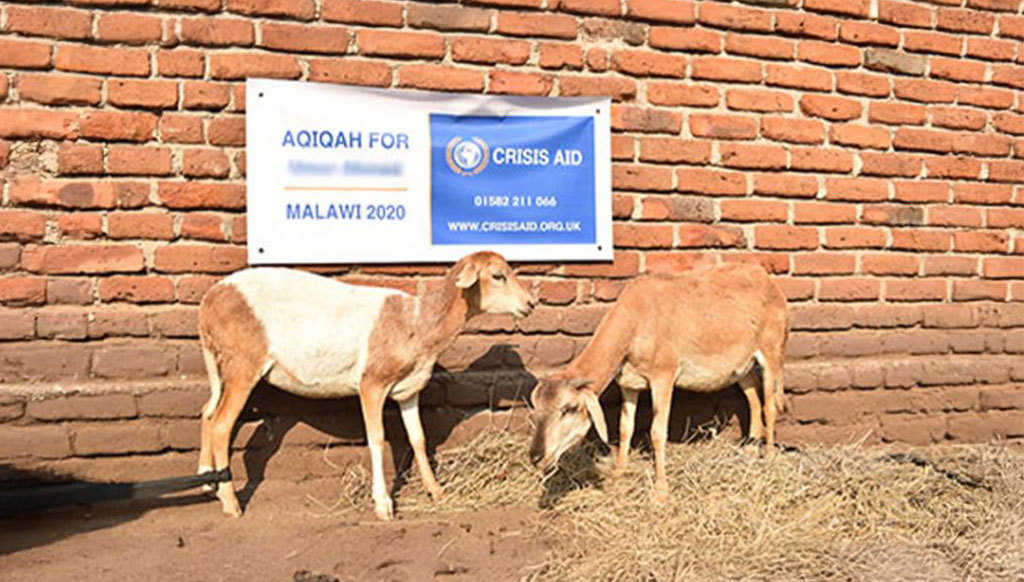Aqiqah is an Islamic tradition involving the sacrifice of an animal upon a child’s birth. It is a form of Sadaqah and a Sunnah practice. For a boy, two animals are sacrificed; for a girl, one animal. The meat is distributed to the poor. Crisis Aid offers Aqiqah services, ensuring the sacrifice is performed and the meat reaches those in need.
-
Aqiqah for a boy is £150 (two animals), while for a girl, it is £75 (one animal)
By donating your Aqiqah through Crisis Aid, you not only fulfil your religious duty but also change lives. Every sacrifice provides food for families struggling with hunger, ensuring that your generosity has a lasting impact.
It was narrated that ‘Aishah said: “The Messenger of Allah (ﷺ) commanded us to sacrifice two sheep for a boy’s ‘Aqiqah and one sheep for a girl”
Aqiqah is a Sunnah practice in Islam, performed to express gratitude for the birth of a child. It involves sacrificing an animal and distributing the meat to family, friends, and those in need. This act follows the tradition of the Prophet Muhammad (ﷺ) and brings blessings to the child and family.
Aqiqah is recommended to be carried out on the 7th day after birth, but if that is not possible, it can be done at any later time. There is no strict deadline, and many parents perform it when they are financially able.
- For a boy, it is recommended to sacrifice two sheep or goats.
- For a girl, it is recommended to sacrifice one sheep or goat.
However, if someone cannot afford two animals for a boy, one is also acceptable.
Crisis Aid arranges for the sacrifice to be performed in needy communities, ensuring that the meat is distributed to the poor, orphans, and struggling families. This allows your Aqiqah to not only fulfil the Sunnah but also provide essential food to those in need.
Yes, if Aqiqah was not performed during infancy, it can still be done later. Some parents choose to perform it when their child reaches a significant milestone, such as reaching adulthood.
Once the Aqiqah is performed you will recieve pictures and a video within 3 months. We are not able to guarantee that the Aqiqah will be perfomed on the 7th day due to logistics, including purchasing of healthy animals to meet the requirements of the ritual.
How Aqiqah Works
✅ Sacrifice Performed – The prescribed number of animals is sacrificed according to Islamic guidelines.
✅ Meat Distribution – The meat is given to those most in need, ensuring your Aqiqah benefits the less fortunate.
✅ Affordable & Hassle-Free – Crisis Aid manages the entire process for you, making it easy and meaningful.

